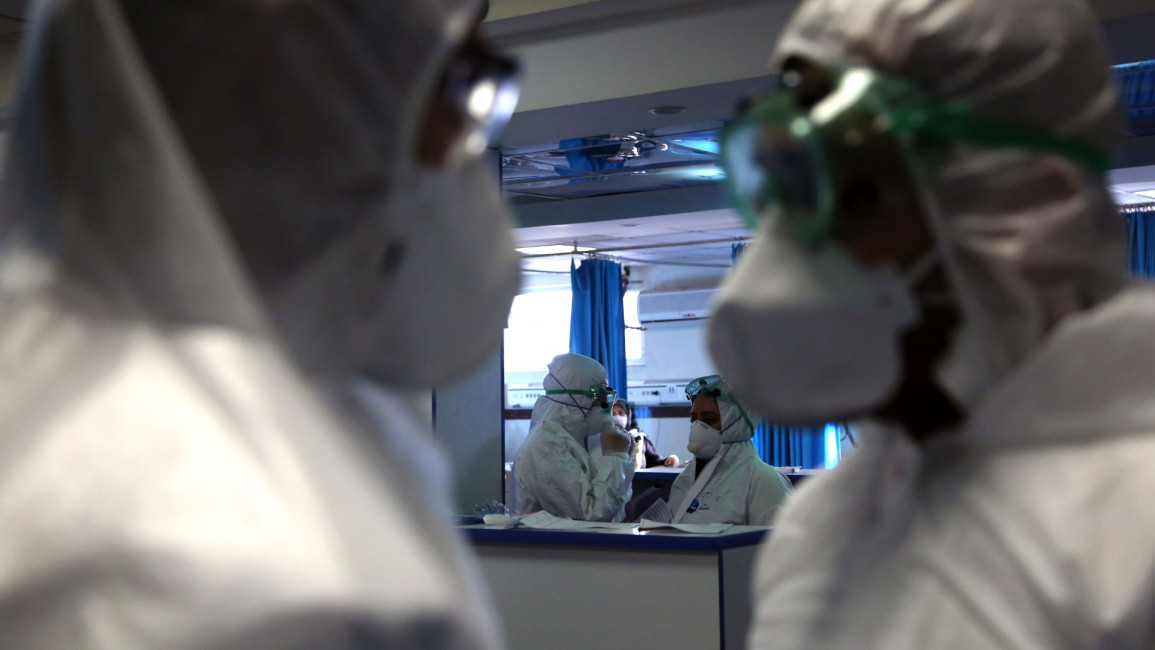Twenty-three Iranian MPs diagnosed with coronavirus as Khamenei orders 300,000 soldiers to combat disease
The MPs had contracted the COVID-19 infection through their constituents, Abdolreza Mesri told Iranian state television.
"These people have a close relationship with the people and they carry different viruses from different parts of the country, which may create a new virus, so we recommend the lawmakers to cut off their relationship with the public for now," the official reportedly said on Tuesday.
According to a report by The Guardian, the head of Iran's emergency medical services, Pirhossein Kolivand, was also diagnosed with the virus.
The virus has already killed seven Iranian officials since the outbreak began in the country last month.
On Monday, a senior member of Iran's advisory council died after contracting the novel coronavirus, the first top official to succumb to the illness as the Islamic Republic struggles to contain the outbreak.
Read also: Applying essential oil to anus 'cures coronavirus': Iranian cleric
Expediency Council member Mohammad Mirmohammadi, who is among the officials that advise the country's Supreme Leader Ayatollah Ali Khamenei, died at the age of 71 at a Tehran hospital.
On Saturday, recently-elected Iranian MP Mohammed Ali Ramazani died after being tested positive for the deadly virus a few days earlier, The Independent reported.
One of Iran's seven vice presidents, Massoumeh Ebtekar, and Deputy Health Minister Iraj Harirchi are among several senior officials who have been infected.
Twitter Post
|
The latest developments on Tuesday came as the deputy health minister, Alireza Raeisi, said the death toll from the coronavirus outbreak in Iran was increased to 77, with more than 2,336 confirmed cases.
Meanwhile, the country's Supreme Leader Ayatollah Ali Khamenei ordered some 300,000 armed forces and volunteers to assist health officials in combating the outbreak.
Many of Iran's neighbours have imposed restrictions on travel to and from the Islamic Republic.
The COVID-19 was first detected in China in early December but has since spread across much of the world. Worldwide, more than 91,000 case have been confirmed and the death toll stands at 3,116.
On Tuesday, the UN's World Health Organisation (WHO), warned the world has entered uncharted territory in its battle against the deadly coronavirus.
A day earlier, WHO said it also sent its first planeload of assistance to Iran to help fight the novel coronavirus.
Six medics have been dispatched along with 7.5 tonnes of medical equipment and supplies, including test kits, aboard a UAE military aircraft, said Robert Blanchard from the WHO in Dubai.
Supplies worth more than $300,000 were dispatched from the UAE to Iran on Monday, Blanchard said.
Among the supplies sent were gloves, surgical marks and respirators - "the critical items needed for infection prevention and control to support health care workers", he added.
Read more: How the Middle East is dealing with coronavirus
The WHO official also warned that global supplies to combat the novel coronavirus are running low.
"What we see now is that demand has greatly exceeded our available stocks... and we are struggling to get access to more supplies," he explained.
The six-member medical team sent to Iran is made up of doctors, epidemiologists and laboratory specialists who will help the Islamic Republic detect and control the virus, Blanchard said.
WHO operations manager Nevien Attalla said some 15,000 health workers in Iran would benefit from the supplies which were the "first big shipment which supports the response to coronavirus".
"Iran is a challenging country. You don't have always easy approvals to go," she said.
Follow us on Facebook, Twitter and Instagram to stay connected



